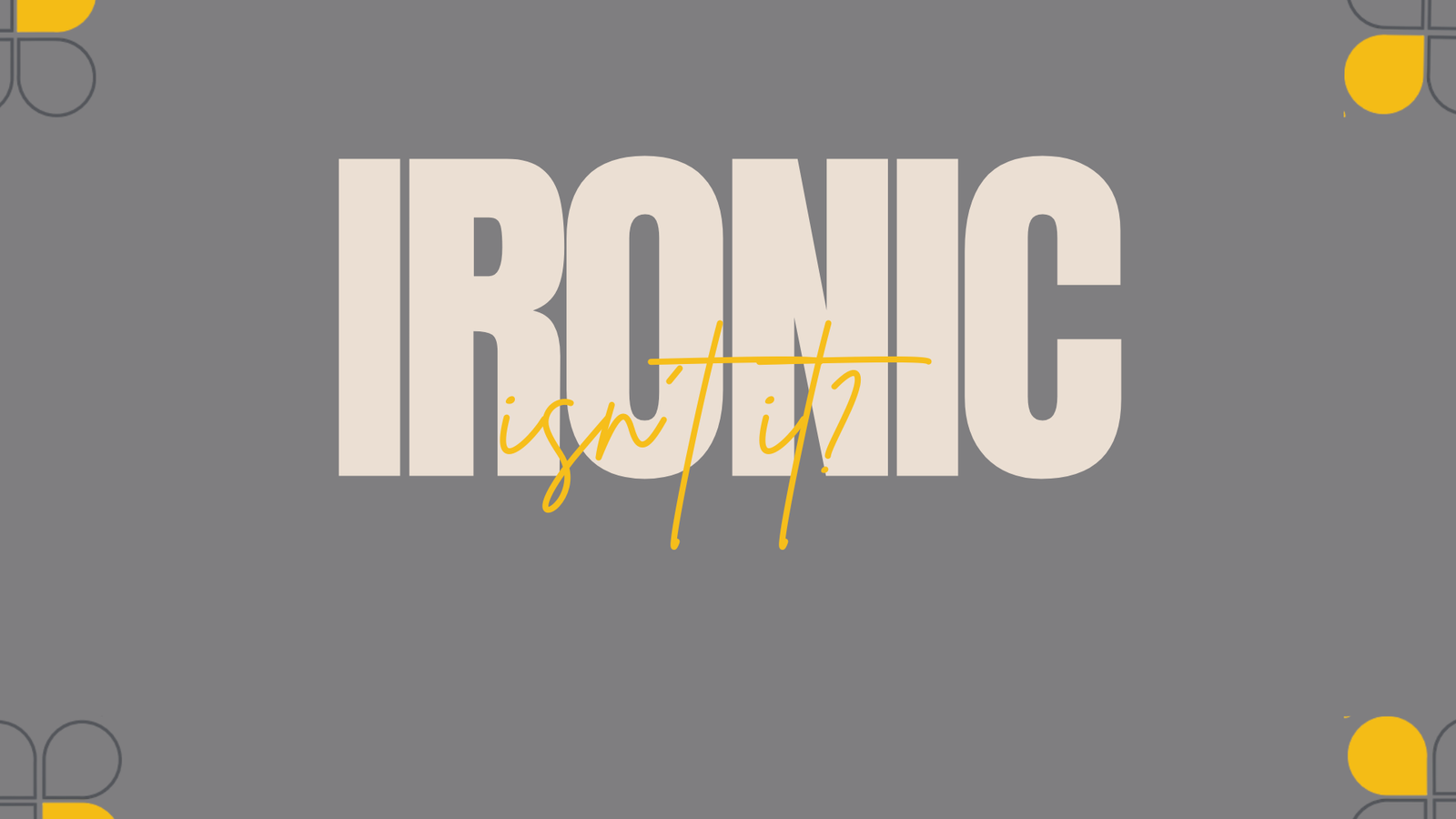Isn´t it ironic?
By Susana von der Heide Founder & Thinking Partner at VON DER HEIDE
There’s something strange about the way we talk about leadership today.
On one hand, we say we value empathy, authenticity, vulnerability. We applaud leaders who show their human side, who listen, who admit they don’t have all the answers.
On the other, we still tolerate – and often admire – a leadership style as old as it is elegant: irony.
That subtle weapon. That clever distancing move. The remark that doesn’t say what it says, yet somehow says it louder than words. It wears the mask of humor but can hit harder than a shout.
So what’s behind an ironic leader?
Irony isn’t the same as sarcasm. It’s not necessarily cruel. But often, it’s the ego’s defense. A polished way to keep your distance. A way to hide vulnerability behind clever wordplay. A method of exerting power without seeming authoritarian. Like a clean rugby tackle – you’re on the ground, wondering what just happened.
And the real question is: what kind of culture does that build?
From where I stand, the answer is clear: a culture that’s no longer aligned with our times. One that delays transformation instead of leading it.
Empathy, by contrast, isn’t a performance. It’s a decision.
And it’s not an easy one. To empathize is to lower your guard. To show weakness. To say, “I don’t know.” In many corporate cultures, that still feels like a luxury only the powerless can afford.
But as Brené Brown says, “Empathy is the antidote to shame, the heart of connection.”
And connection isn’t about analyzing others – it’s about creating the kind of space where others don’t need to perform.
Is irony outdated?
In coaching sessions with real leaders – the ones handling budgets, power, and yes, fear – I see it often: irony as a shield against uncertainty. Irony as a substitute for care.
Irony as a comfort zone for those who were once praised for their “wit,” but now feel out of place in a world where emotional intelligence matters more than quick comebacks.
But as the World Economic Forum reminds us, the leadership of tomorrow will require very different human capabilities:
- Adaptive thinking
- Metacognition
- Moral judgment
- Systemic awareness
- Purpose
- Authenticity
And none of those are cultivated through irony. They require humility. Presence. And, above all, empathy. But empathy doesn’t happen without vulnerability. And vulnerability can’t co-exist with irony.
An empathetic leader doesn’t need to deflect with a witty one-liner. They’re not stand-up comedians chasing laughs. They’re not influencers dropping hot takes for likes.
They’re there to create the conditions where others can thrive. Where talent can emerge, and the best in people can grow.
Are we ready to let go of irony as a power play? Maybe not yet. But we should at least get uncomfortable with the question.
Because too many leaders still hide behind irony to avoid what truly scares them: showing up as human, admitting they don’t have it all figured out, standing there without a script.
And in a world where technical knowledge is available on demand – faster, cheaper, more accurate than ever, thanks to AI – that’s a trap.
If your leadership rests solely on “knowing more,” your role is already at risk. What can’t be automated – or faked – is your ability to connect, to build trust, to lead with presence. That’s where the new human edge is found.
So isn’t it ironic? That we ask for authentic leaders… while still rewarding irony as a sign of brilliance.
That we celebrate vulnerability… yet still cling to the safety of knowing it all.
That we preach “talent is a two-way street”… while designing organizations that punish those who dare to show themselves.
The real question isn’t whether irony has a place.
It’s whether we want leaders who leave a mark… or leaders who make space.




